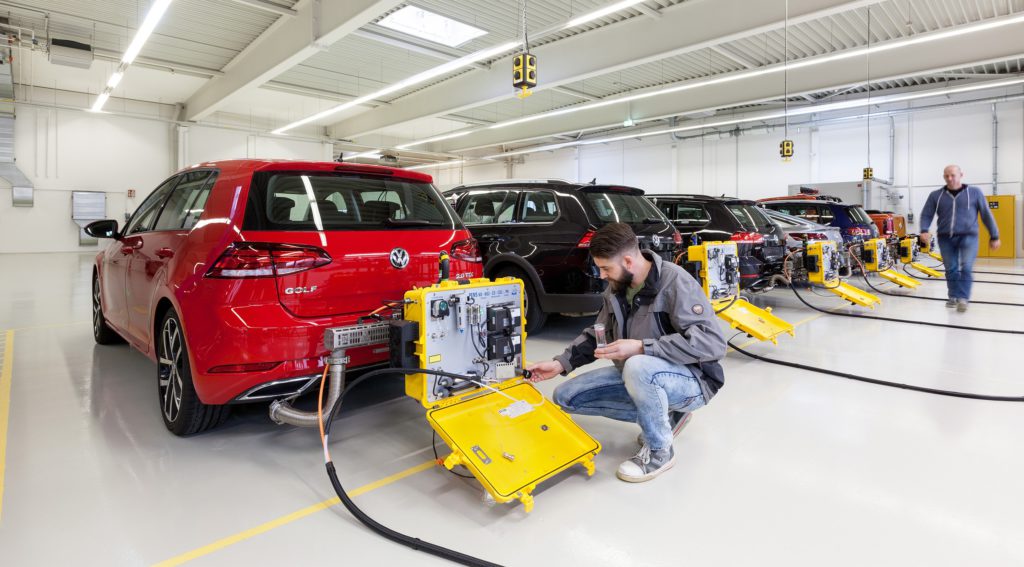VW suggests massive production delays could result from WLTP
11 June 2018

11 June 2018
Volkswagen Group (VW) has suggested that production of up to 250,000 cars from all its brands will be delayed due to effects of laboratory testing for the new Worldwide Harmonised Light-Vehicle Test Procedure (WLTP).
The company said that implementation of the new procedures for all vehicles from September 2018 would mean restrictions on the availability of some models and could also affect working capital by driving up first-half inventories.
′Because of the introduction of the new WLTP testing procedure, we expect in the second half of 2018 an effect at the VW group of around 200,000 to 250,000 vehicles that we will build later than originally planned,’ VW said. ′We are working at high pressure on further measures to keep the effects on our production as low as possible.’
Speaking at a Works meeting at the VW plant in Wolfsburg, Group CEO Herbert Diess stated: ′Within the Volkswagen brand alone, we need to test more than 200 model variants and have them type-approved within a very short space of time.’
He added that the test procedure was much more complex and took much longer and that the volume of testing work was three to four times higher than was previously the case. ′To master this challenge, our test rigs have been and will be operated virtually round-the-clock. We must expect production interruptions in the third quarter, after the works holidays in Wolfsburg, we will only be making vehicles that meet the new standards.
′Vehicles will be delivered step-by-step as soon as the type approvals required are available. Nevertheless, we will need to store a large number of vehicles on an interim basis. To ensure that this number does not become too large, we will need to plan closure days for production in Wolfsburg during the period between the works holidays and the end of September.’
There was no word from VW over potential losses from disruptions caused by production bottlenecks, which the company has been trying to prevent. However, German magazine Der Spiegel has reported that costs could run into billions as vehicles enter dealerships late or in some cases, orders are cancelled.
Earlier in June, Porsche announced that it would temporarily limit the number of models it sells in Europe, as it readies its fleet for the new test procedures. Waiting times for the Cayenne SUV and Panamera could be until at least March 2019. The 911 model won’t be available until autumn.
In May, Peugeot announced that production of the 308 GTI would be suspended for around four months, to allow for petrol particulate filters to be engineered into vehicles, while BMW has also halted the manufacture of vehicles to ensure they comply with the RDE portion of the test. BMW has also suggested it would reduce some model options due to WLTP.